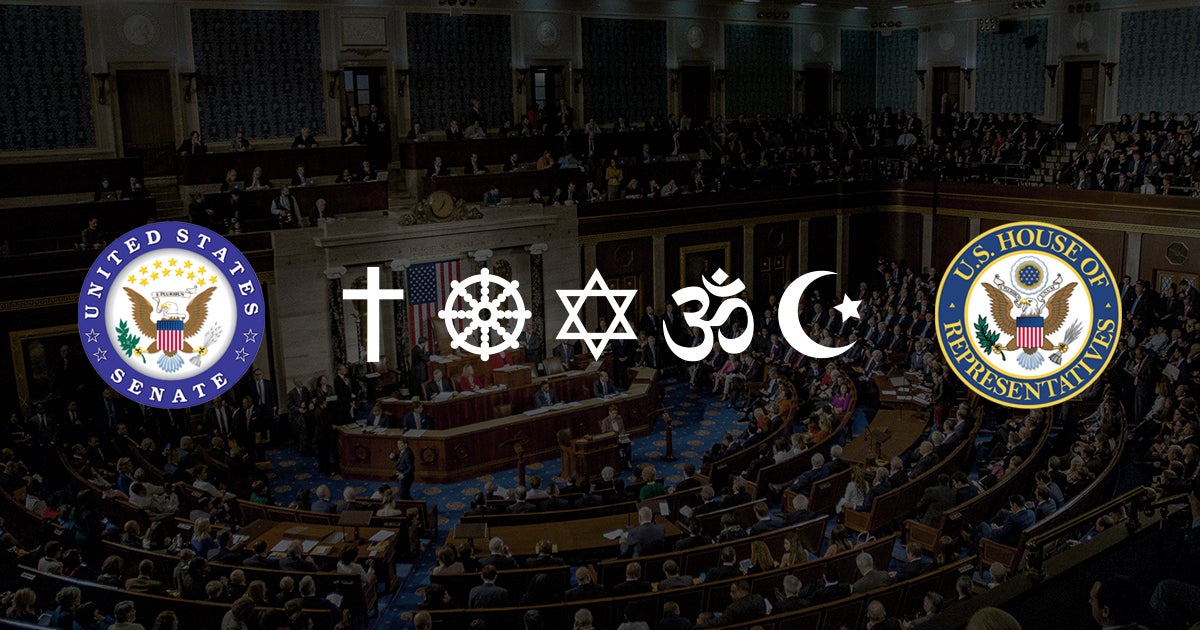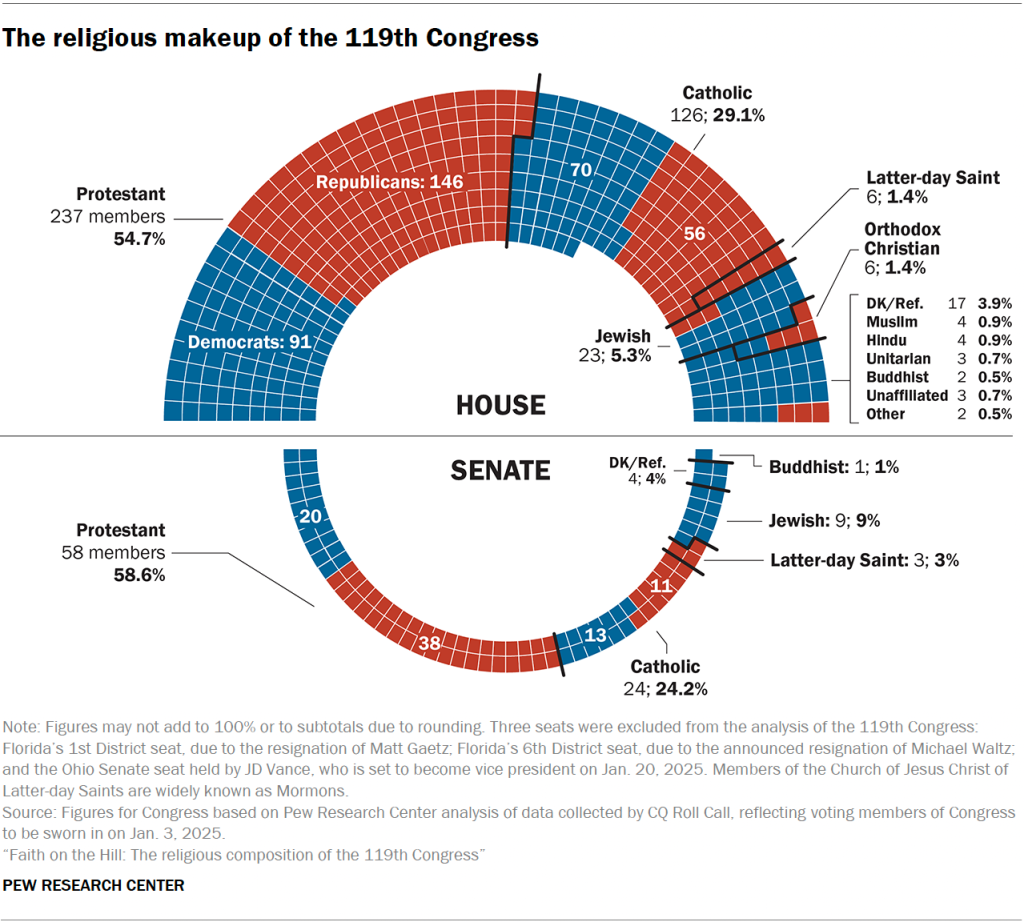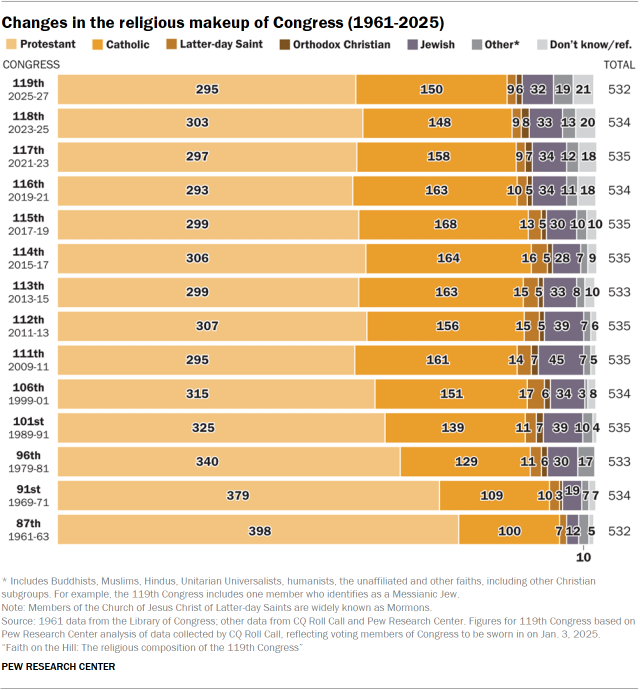
by Jorge Gomez • 2 minutes
Capitol Hill appears to be getting more religiously diverse, according to Pew Research Center’s biannual report on the religious composition of Congress.
Christians make up an overwhelming majority in the current 119th Congress, which convened January 3. Christians comprise 88% of voting members in the Senate and House of Representatives.
Among Christians, 57% identify as Protestant; Catholics make up the next largest share at 28%. About 6% are Jewish, and about 6% fall into various faith groups, including Latter Day Saints, Orthodox Christians, Buddhists, Muslims and Hindus. About 3% of members refused to respond or said they didn’t know.

Pew data shows that between 1961 and 2025, Christians have consistently been in the majority. But Congress has grown more diverse over time, with more members identifying with different faith groups.
Catholic representation has seen the most growth over the last six decades. Catholics made up about 18% of Congressional seats in 1961. That number went as high as 31% between 2017 and 2019.
Pew also notes a slow, yet noticeable change among minority faiths. There will be four Muslims in the new House of Representatives, one more than in the last session. There will also be four more Hindus in the House, two more than in the previous session. Three Buddhists are set to serve in the new Congress, an increase of one.

Religious affiliation also differs by party. 99% percent of Republicans identified with a religious faith when compared with roughly 91% of their Democrat peers. Ryan Burge, a political science professor at Eastern Illinois University who has extensively studied religion in America, referred to the differences in affiliation as a “God gap.”
“Congress represents America as it looked 20 or 30 years ago, not the way it looks today,” Burge said. “In some ways, it’s just a good snapshot of the generational difference in American religiosity.”
The 119th Congress also has 73 first-time members, comprising about one-seventh of the entire body. These newcomers seem to be driving much of the changing religious composition, according to Pew.
“These newcomers are less likely than the returning members of Congress to be Christian,” the study notes. “First-term members of Congress are also less likely than returning members to be Protestant. Newcomers describe themselves in broad or vague terms as ‘Christian,’ ‘Protestant,’ ‘evangelical Christian’ or ‘evangelical Protestant,’ compared with a slightly higher share of returning members.”
“In one way, the incoming Congress will be record-breaking: for the first time, multiple members describe themselves as religiously unaffiliated, or ‘none,’” writes Samuel Benson at Deseret News. “In recent decades, the share of U.S. adults who identify as ‘nones’ has increased dramatically. Still, the share of ‘nones’ in Congress—making up less than 1% of the body—far trails the 28% of U.S. adults who have no religious affiliation.”
“A survey conducted by the Pew Research Center earlier this year found just under 70 percent of Americans affiliating with a religious faith,” write Nick Eskow and Paul V. Fontelo at Roll Call. “On average, Congress will continue to be much more religious than the nation as a whole, with around 95 percent of lawmakers across both the Senate and House identifying with a religious faith.”